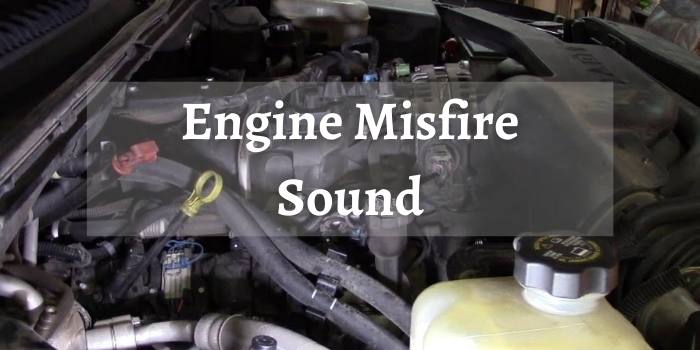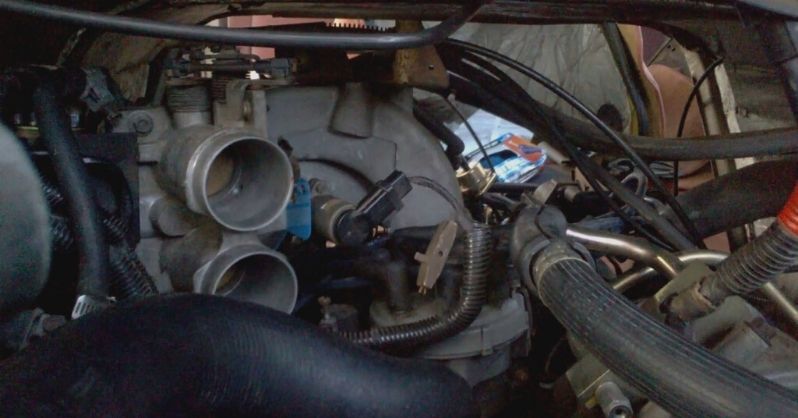You’re driving on the highway, enjoying the scenery, and listening to your favorite radio station when suddenly you hear a loud noise coming from your car engine. High chance is that it’s an engine misfire sound.
So, how do you stop engine misfire sounds? Well, you’ll have to deal with the issue that’s causing the engine to misfire. There are one or multiple causes behind this, and it’s important to figure out what’s causing the problem first.
Here, we’ll discuss how you can figure out engine misfire causes and fix them. Keep reading to learn more.

What Does an Engine Misfire Sound Like?
Before getting into the causes and fixes, we believe that it’s important to be sure whether it’s an engine misfire you’re hearing or not.
Fortunately, the misfire sound is quite noticeable even to people with no prior experience. The sound is caused when the engine doesn’t fire on all cylinders and causes the car to struggle to drive. The engine is more likely to misfire are when the car is struggling to drive between 1500-2500 rpm.
Symptoms of Engine Misfiring
Engine misfiring can have several causes, but the symptoms are usually the same. These are as follows.
- The engine will run rough and may shake or vibrate,
- The check engine light may also come on,
- It may produce less power than usual,
- In some cases, engine misfiring can also cause a decrease in fuel economy.
Why is Your Car Making Engine Misfire Sounds?
Here are some of the most common issues that cause engine misfires. Cross-check every one of them as there may be more than one issue causing the misfire.
Problems with the Ignition System
Ignition system problems are a common cause of engine misfire. The ignition system is responsible for providing the spark that ignites the air-fuel mixture in the engine’s cylinders.
If there is a problem with any part of this system, it can prevent the spark from occurring. As a result, the engine will misfire. These problems can be caused by a variety of factors, including faulty spark plugs, worn Ignition wiring, and damaged Ignition coils. In some cases, multiple Ignition systems may be at fault too.
Emissions Equipment Problem
Engine misfires can be caused by a variety of problems with the emissions control system.
One common issue is an air/fuel mixture that is not correctly balanced. This can be caused by a faulty exhaust gas recirculation system or a positive crankcase ventilation system that is not functioning properly.
Another potential cause of engine misfire is a buildup of carbon deposits on the valves or other components of the engine. This can restrict airflow and cause the engine to run less smoothly. In some cases, it may also cause the engine to backfire.
Mechanical Problems
Misfire occurs when the air/fuel mixture in the cylinders is unable to ignite properly, resulting in a loss of power. There are several reasons why this can happen, but one of the most common is piston and cylinder wear.
Over time, the piston rings and cylinder walls can become worn, causing a loss of compression. This makes it difficult for the air/fuel mixture to ignite, leading to a misfire.
Inadequate Fuel
Inadequate fueling can also lead to misfire. If the engine isn’t receiving enough fuel, or if the fuel is of poor quality, it can prevent proper combustion from taking place. Fortunately, this issue can be solved through a quick refill.
How To Fix Engine Misfire

As you can see, multiple issues may lead to an engine misfire. So, there isn’t any universal fix for this issue.
However, we’ve narrowed it down to three solutions that can solve engine misfiring issues. In the following, we’ll discuss the issues along with their specific application case.
Fix to Mechanical Issues
A check engine light can indicate a variety of different problems with your vehicle, but one common cause is an engine misfire due to mechanical issues.
This is where DTC codes come in. These codes are stored in the vehicle’s computer when the engine misfires. By reading these codes, you can narrow down the possible causes of the problem and make the necessary repairs.
Once you pinpoint the mechanical issue, you need to either repair or replace the component in question. This can be rather expensive depending on the component at fault. For example, replacing a cylinder will cost you at least $500. On the other hand, a spark plug replacement costs around $50.
Fix to Ignition System Issues
You can detect if the misfire is caused by an ignition system problem by checking DTC codes.
Common ignition system problems include faulty spark plugs, worn-out ignition wires, and a weak ignition coil. In most cases, replacing the damaged component will fix the problem. However, if the ignition system is significantly degraded, it may need to be replaced entirely.
Thankfully, replacing ignition system components is fairly inexpensive and straightforward.
Fix to Fuel System Issues
Engine misfire is often caused by a failing fuel system. The fuel system consists of the fuel tank, lines, pump, and injectors. If any of these components are not working properly, the engine will not run smoothly.
The most common cause of fuel system problems is a dirty or clogged fuel filter. A fuel filter prevents dirt and debris from entering the fuel injectors. Over time, the filter can become clogged with dirt and debris, causing the engine to run unevenly.
So, cleaning and maintaining the fuel system will help you prevent engine misfire over the years.
Prevention Tips For Engine Misfire
One way to prevent engine misfire is to keep up with regular maintenance. This means changing the oil and spark plugs regularly, as well as checking the air filter and keeping the fuel system clean. Additionally, it’s important to ensure that the engine is properly tuned.
Another way to prevent engine misfire is to avoid excessive idling. When an engine is idling, it isn’t operating at its optimal temperature, which can lead to misfires.
Finally, it’s important to drive carefully and avoid putting strain on the engine by accelerating too quickly or driving at high speeds. By following these prevention tips, you can help keep your engine running smoothly.
Conclusion
The next time you hear that engine misfire sound, do yourself a favor and get it fixed asap. While the problem may seem like a minor one, it can quickly turn into something much worse if left unchecked.
We’ve outlined some of the most likely causes of this issue and some plausible fixes, but we recommend taking your car to a professional to be sure. Don’t let an engine misfire ruin your day – or worse, cause further damage to your vehicle.